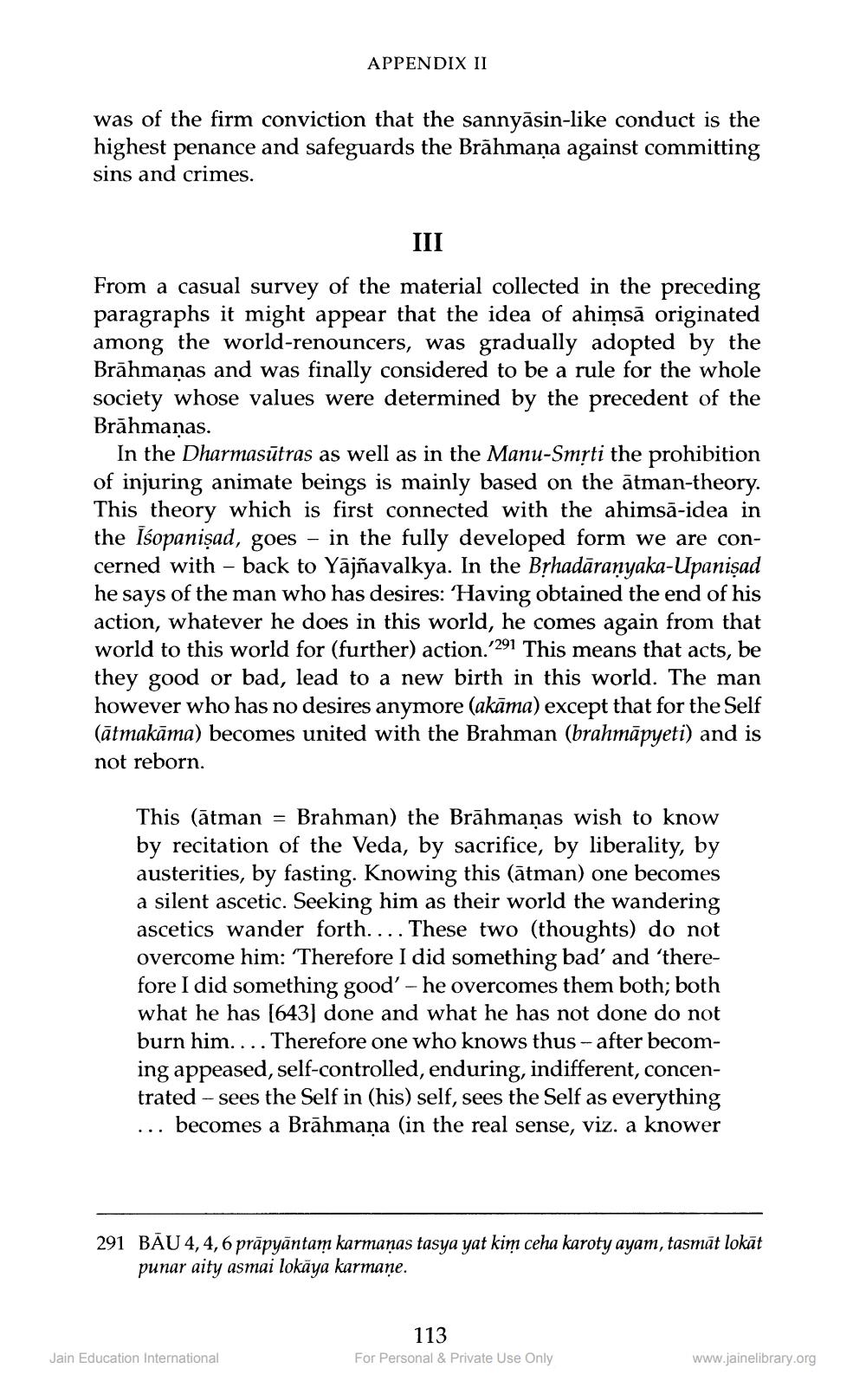________________
APPENDIX II
was of the firm conviction that the sannyāsin-like conduct is the highest penance and safeguards the Brāhmaṇa against committing sins and crimes.
III
From a casual survey of the material collected in the preceding paragraphs it might appear that the idea of ahimsā originated among the world-renouncers, was gradually adopted by the Brāhmaṇas and was finally considered to be a rule for the whole society whose values were determined by the precedent of the Brāhmaṇas.
In the Dharmasūtras as well as in the Manu-Smrti the prohibition of injuring animate beings is mainly based on the ātman-theory. This theory which is first connected with the ahimsā-idea in the Isopanişad, goes – in the fully developed form we are concerned with - back to Yājñavalkya. In the Brhadāranyaka-Upanişad he says of the man who has desires: Having obtained the end of his action, whatever he does in this world, he comes again from that world to this world for (further) action. 291 This means that acts, be they good or bad, lead to a new birth in this world. The man however who has no desires anymore (akāma) except that for the Self (ātmakāma) becomes united with the Brahman (brahmāpyeti) and is not reborn.
This (ātman = Brahman) the Brāhmaṇas wish to know by recitation of the Veda, by sacrifice, by liberality, by austerities, by fasting. Knowing this (ātman) one becomes a silent ascetic. Seeking him as their world the wandering ascetics wander forth. ... These two (thoughts) do not overcome him: 'Therefore I did something bad' and 'therefore I did something good' - he overcomes them both; both what he has [643] done and what he has not done do not burn him.... Therefore one who knows thus - after becoming appeased, self-controlled, enduring, indifferent, concentrated - sees the Self in (his) self, sees the Self as everything ... becomes a Brāhmaṇa (in the real sense, viz. a knower
291 BĀU 4,4,6 prāpyāntam karmanas tasya yat kim ceha karoty ayam, tasmāt lokāt
punar aity asmai lokäya karmane.
113
Jain Education International
For Personal & Private Use Only
www.jainelibrary.org




